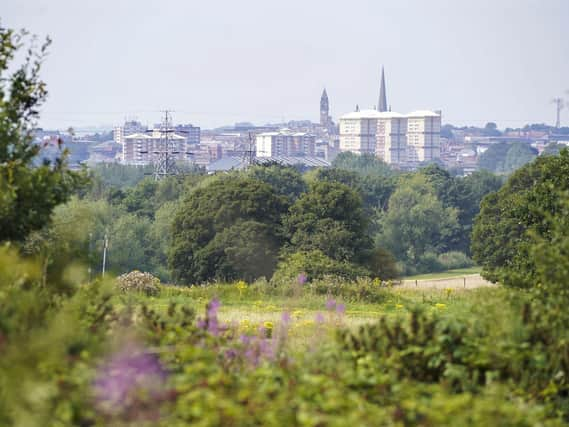The Big Conversation: Two thirds of people in Wakefield are concerned about a second wave of Covid-19


With more than six months having passed since a national lockdown was levied on March 23, life in the UK has changed beyond recognition.
Employees have moved to working from home en masse, meeting up with over six people is now a crime enshrined in law and face mask wearing is mandatory in much of the public sphere.
Advertisement
Hide AdAdvertisement
Hide AdAll these changes have uprooted and altered many people’s attitudes, priorities and lives, which is why we asked readers across the country about what’s changed for you in our Big Conversation survey.
The Big Conversation survey was created by JPI Media – publisher of newspapers and websites across the UK.
As winter approaches 67 per cent of people who responded to the survey said they were very concerned about a second wave.
The pandemic has taken its toll on town and city centres. In the Wakefield district 23 per cent of people surveyed said they had visited the city centre while 38 per cent said they had visited “a lot less”.
Advertisement
Hide AdAdvertisement
Hide AdEighteen per cent said they had not visited the city centre at all since lockdown.
Unsurprisingly, visiting family was the factor that most people said was crucial to their quality of life with 73 per cent listing this on the survey.
Eating at cafes and restaurants was listed as important by 57 per cent of people, going to the barber or hairdresser at 52 per cent, and 59 per cent going on holiday.
People differ on what they are comfortable doing.
Eighty-three per cent of people said they are either comfortable or very comfortable visiting family.
But that number drops dramatically for other activities.
Advertisement
Hide AdAdvertisement
Hide AdLess than half of the people who responded to the survey said they were comfortable going to pubs.
That number stands at 48 per cent, with eating at cafes and restaurants at 56 per cent, and going to the cinema at 18 per cent.
It appears there is still a long way to go before people in Wakefield plan to get back on public transport with 80 per cent saying they are either uncomfortable or very uncomfortable with the idea.
Forty-one per cent of people said they were not comfortable returning to their place of work, while 35 per cent said that they were.
Advertisement
Hide AdAdvertisement
Hide AdForty-six per cent of people answered that they did not know if they were comfortable sending their children back to school. This was a higher proportion that those who said they were or were not comfortable. But people in the district largely feel they have adapted well to new ways of doing things made that were made necessary by the pandemic.
Asked how they had adapted to online services, such as online shopping and video calls, 83 per cent of people said they had “very well” or “fairly well”.
It is clear from the results that loneliness and isolation has been exacerbated by the pandemic. Not having someone to easily turn to for help was listed as a problem by 64 per cent of people.
Not having the right electronic devices was a problem for 32 per cent of people and not having a good enough internet connection at home was a problem for 26 per cent of people.
Advertisement
Hide AdAdvertisement
Hide AdMore than half of people who responded – 57 per cent – said they were currently in paid work, 31 per cent said they were not working, and 3 per cent remained on furlough.
Forty per cent of people were concerned about their job security or income from paid work, 49 per cent were concerned about their personal or household finances.
Half of people who responded said they had cut down on their spending since the pandemic began and 43 per cent said they were using local businesses more.
In terms where investment needs to go in the future and asked to choose up to three option 65 per cent said local hospitals, followed by social care at 51 percent, emergency services at 49 per cent, and support for local businesses at 47 per cent.
Advertisement
Hide AdAdvertisement
Hide AdThough much was made of community spirit in the opening days of the crisis as volunteers gave their time to help others and the country came out to clap for the NHS, the largest proportion of people in Wakefield said there had been little overall change.
Asked if the sense of community where you live has got stronger or weaker since lockdown, 44 per cent said it was neither stronger nor weaker.
However 32 per cent of people believed it had become stronger. A total of 18 per cent believed it had become weaker or much weaker.